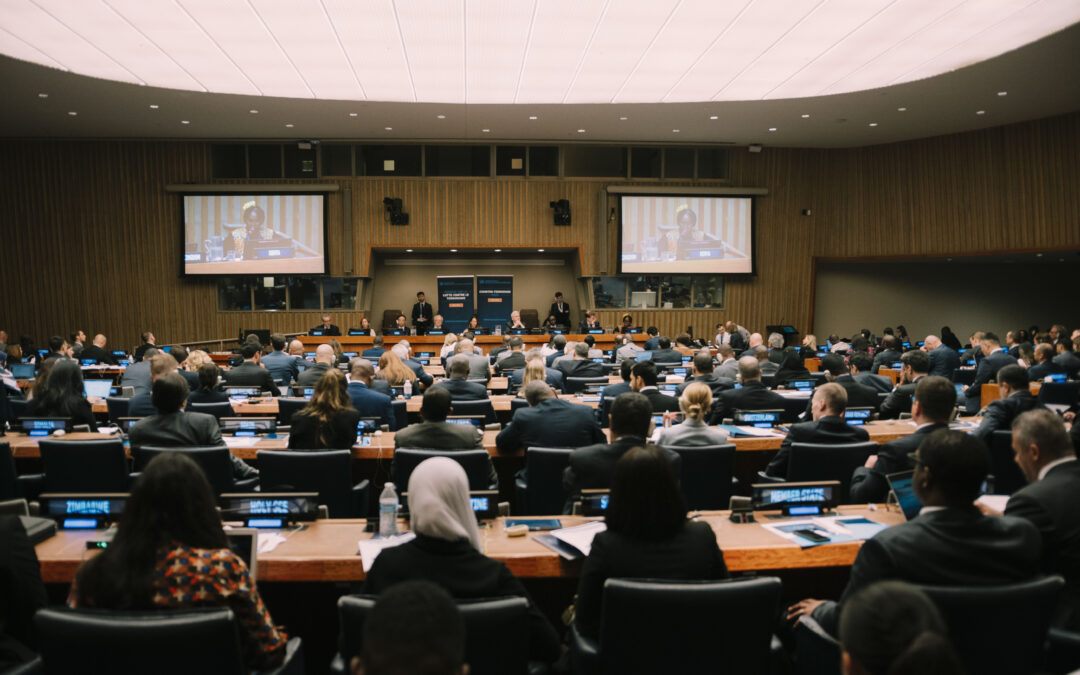Remarks by Mr. Miguel Ángel Moratinos,
Under-Secretary-General and High Representative for UNAOC,
at the 3rd High-Level Counter-Terrorism Week
“SESSION II: Building Effective and Resilient Member States’ Institutions in the Evolving Global Terrorism Landscape”
19 June 2023, 3pm EDT, United Nations Headquarters, New York
I thank the co-chairs:
Mr. Raffi Gregorian, Director and Deputy to the Under-Secretary-General, United Nations Office of Counter-Terrorism,
and
H.E. Ms. Vanessa Frazier, Ambassador, Permanent Representative of Malta to the United Nations.
Your Excellencies,
Distinguished guests,
It is heartwarming to see member states , UN relevant agencies , civil society and other stakeholders and many partners coming together in the 3rd High Level Counter Terrorism week. I congratulate UNOCT for a successful opening this morning.
This collaboration and coordination manifests the whole-of-society and whole-of -a UN-approach for preventing and countering terrorism. It is an integrated approach designed to better coordinate responses and approaches, while sharing experiences and best practices.
And UNAOC, is proud to be part of this holistic approach through its collaboration with UNOCT and other coordination compact entities particularly in 2 programs: The Global Sports Program and the Global Program on Countering Terrorist Threats against Vulnerable Targets.
We are also very pleased with the outcome of our work with and support for civil society organizations that aims at preventing violent extremism as and when conducive to terrorism through capacity building training to strengthen their resilience.
We may all agree that the terrorist threats continue despite global efforts. The landscape, however, is evolving and changing.
There is hardly a week that passes by without an act of terror targeting places of worship, religious figures and other soft targets.
Last week, an attack took place on the Lhubirira secondary school in Mpondwe in Western Uganda was reportedly by the Allied Democratic Forces (ADF) group. Dozens of people were killed, mostly students, and that several others were abducted.
It is important to acknowledge that we cannot effectively defeat terrorism without tackling the root causes conducive to its spread. Understanding the drivers is key to our prevention efforts.
Weak institutions, inequalities, poverty, marginalization and polarization all provide fertile ground for terrorist activities and enables them to recruit vulnerable individuals and spread their toxic ideologies using these loopholes.
Over the past years far-right extremist movements have succeeded in mainstreaming and normalizing their extremist ideologies and radical discourse.
They succeeded in doing so in democratic and authoritarian societies.
Their pace has been much faster than the overall global efforts.
Distinguished guests,
I would like to recall resolution 75/291 on the Global Counter Terrorism Strategy, in which Member States affirmed their determination to work towards conflict resolution, to confront oppression, to eradicate poverty, to promote sustained economic growth, sustainable development, global prosperity, good governance, human rights, and fundamental freedoms for all and the rule of law, to improve intercultural understanding and to promote respect for all.
In its operative paragraphs, the resolution encourages the efforts of relevant actors, including religious leaders of all faiths, to discuss within their communities the drivers of terrorism and violent extremism conducive to terrorism to evolve strategies to address them, and underlines that Member States, regional organizations, non-governmental organizations, religious bodies and the media have an important role to play in promoting tolerance and facilitating understanding, inclusive dialogue and respect for religious and cultural diversity and human rights.
The resolution refers to the work of the United Nations Alliance of Civilizations in promoting tolerance, pluralism, respect for diversity, dialogue among civilizations and the enhancement of interreligious and intercultural understanding and respect among peoples. All above are essential elements that help building trust.
Unfortunately those preventive tools remain largely underfunded compared to the security governance measures.
We all know too well by now that security measures are essential but they are not enough. Because ideology has no borders.
We need to invest more in prevention rather than reaction. Prevention should be our first line of defense.
This is where the Global Compact role comes into play through continuing to support Member States in their counter-terrorism efforts — from technical assistance and capacity-building, to helping build institutions that are people-centred, and grounded in human rights and the rule of law.
In this context, UNAOC programming activities and initiatives pivots around building prevention models within communities with focus on youth (women and men) who may be vulnerable targets for recruitment by extremist groups.
Our work aims at building resilient, cohesive and inclusive societies.
In our efforts, faith actors, civil society and the corporate sector are our essential partners.
Our people-centered approach is based on the notion of primary prevention.
This means developing critical thinking skills so that these communities are equipped with the mindset that enables them recognize disinformation and conspiracy theories and resist the outreach of the extremist groups.
Through modest seed-funding, mentoring programs and providing a broad and safe space for a meaningful dialogue, we enable faith actors and grassroots to engage with their communities on peace-building, promotion of diversity, mutual respect and human rights.
I am committed to continue our successful collaboration with UNOCT and the compact entities.
I look forward to following the panel discussion.
Thank you.


